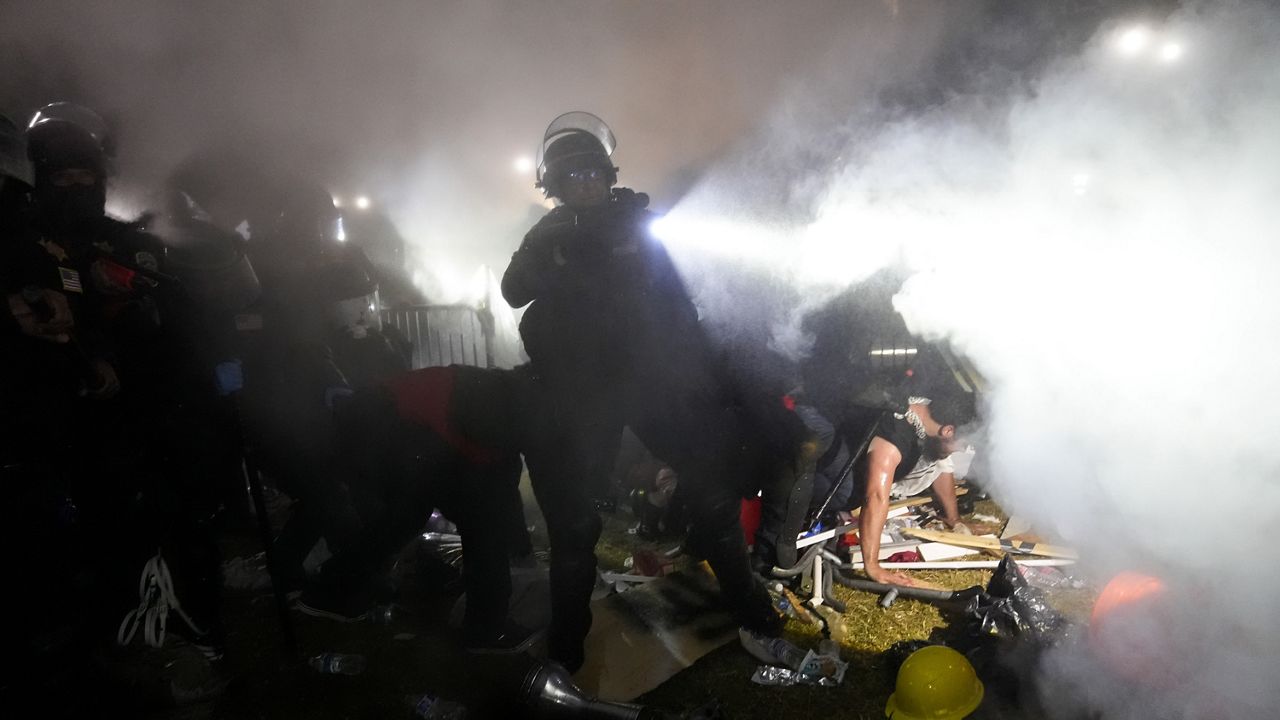LOS ANGELES — The City Council Tuesday instructed the Los Angeles Police Department to provide an after-action report of its response leading up to and during the recent UCLA and USC campus protests over the war in Gaza.
Council members voted unanimously to move the matter forward, and instructed the LAPD and the Office of Inspector General to report on how decisions were made, as well as to make recommendations to improve the department's policies.
Councilwoman Nithya Raman introduced the motion alongside several of her colleagues on May 7, noting that there were hundreds of arrests for what she called non-violent offenses while just a few miles away there was no intervention where actual violence played out for several hours.
"I'm concerned that these divergent responses leave our communities with questions and particularly leave our communities wondering whether the response protesters may get from law enforcement depends on their politics rather than on their actions," Raman said.
Raman noted the council called for a similar after-action report following the George Floyd protests in 2020.
Council President Paul Krekorian agreed with Raman, adding that this would be an opportunity for clarity because there was so much misunderstanding and misinformation about which law enforcement agencies were involved.
Some 25 students from USC and UCLA attended Tuesday's council meeting to urge leaders to move forward with the after-action report. One of those individuals was Anna Weiss, interim vice president of Local 872, the first academic workers union at USC.
"The Local 872 executive board has publicly condemned USC in the strongest and most emphatic possible terms for its alarming escalation and use of force when calling LAPD riot police to arrest peaceful protesters on April 24," Weiss said. "This decision to call the riot police was an egregious reaction to the peaceful protesters and majority of numerous USC students, grad workers and faculty expressing their rights to free speech on their very own campus."
Weiss urged the council to support amnesty for all student protesters who are facing misdemeanor charges. Krekorian later noted that the council had no power over whether charges could be dropped.
USC became a focal point of Southland pro-Palestinian protests following its April 15 decision to cancel valedictorian Asna Tabassum's commencement speech in response to complaints about her online posts critics called antisemitic. USC officials insisted the move was solely a security issue, not a political decision.
Still, tensions continued to mount — leading to the mass protest April 24 and attempted occupation of Alumni Park that resulted in 93 arrests and the clearing of an encampment.
Organizers of the USC occupation — identifying themselves as the USC Divest from Death Coalition — issued a statement saying the encampment was "in solidarity with the people of Palestine as they resist genocide and continue in their struggle for liberation."
In part, the group demanded university divestment from organizations that "profit from Israeli apartheid, genocide and occupation in Palestine."
Student protests also occurred at UCLA where a group of students and others erected an encampment of their own and issued a list of demands similar to that of USC organizers.
Both UCLA and USC leaders had called on law enforcement agencies, including the Los Angeles Police Department, LA County Sheriff's Department and California Highway Patrol, to respond to the protests.
One night a group of people supporting Israel came to the campus and forcefully attacked the encampment.
"We are still gathering information about the attack on the encampment, and I can assure you that we will conduct a thorough investigation that may lead to arrests, expulsions and dismissals," UCLA Chancellor Gene Block said in a message to the campus community May 3. "We are also carefully examining our own security processes in light of recent events. ... This is a dark chapter in our campus' history. We will restore a safe learning environment at UCLA."



